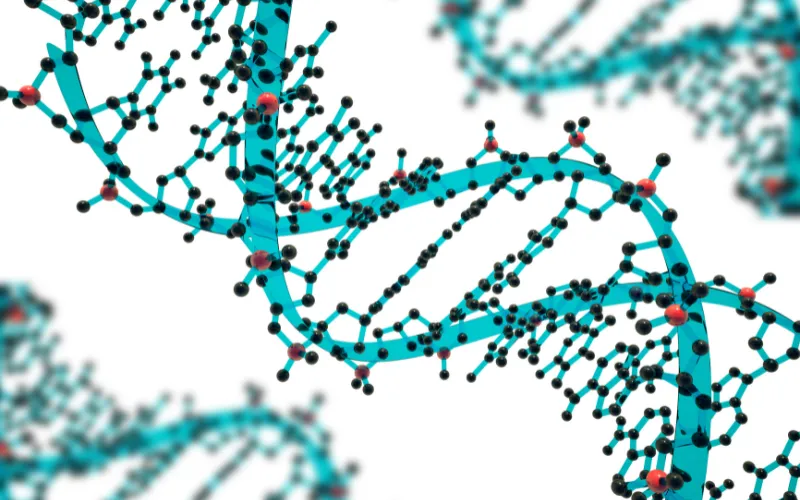
For practitioners, the real question isn’t whether diet matters; it’s how specific compounds alter genetic pathways that drive disease risk and resilience. Phytochemicals nutrigenomic therapy goes beyond broad dietary advice by applying molecular nutrition to influence gene expression, detoxification pathways, and inflammatory signaling.
By incorporating personalized nutrition for nutrigenomics, you can move from population-level recommendations to patient-specific interventions. Compounds like sulforaphane, curcumin, and resveratrol are no longer just “antioxidants” but clinical tools with measurable effects on transcription factors, epigenetic regulation, and metabolic control.
This reframes phytochemicals as precision therapeutics: not supplements in isolation, but targeted interventions aligned with genetic polymorphisms, biomarker data, and individual patient profiles.
Key Takeaways
Phytochemicals revolutionize health: These plant-derived compounds influence gene expression, offering a personalized approach to wellness and the prevention of chronic conditions, such as diabetes, obesity, and heart disease.
Nutrigenomics combines science and nature: Nutrigenomic therapy leverages the interaction between nutrition, genes, and phytochemicals to optimize health at a molecular level.
Potent gene modulators, such as phytochemicals like flavonoids, sulforaphane, and resveratrol, act on genetic pathways to reduce inflammation, oxidative stress, and support detoxification and cell repair.
Clinical applications span major health areas, where phytochemicals play a critical role in cancer prevention, cardiovascular health, and the management of metabolic disorders by modulating key genes.
Microbiome interaction enhances efficacy: Phytochemicals work synergistically with gut bacteria to amplify their bioavailability and system-wide benefits.
Personalization is key: Genetic variability and bioavailability challenges make tailored dietary plans essential, ensuring effective integration of phytochemicals into nutrigenomic therapies.
Table of Contents
Understanding Phytochemicals in the Context of Nutrigenomics
Phytochemicals are plant-derived bioactive compounds that regulate transcription factors, enzymes, and signaling pathways central to inflammation, oxidative stress, and metabolism. Within phytochemical nutrigenomic therapy, these compounds are not supportive “add-ons” but molecular modulators capable of altering disease trajectories through direct effects on gene expression.
How Phytochemicals Interact with Genes
Specific phytochemicals act as molecular switches that upregulate protective pathways and suppress pro-disease signaling:
Sulforaphane (cruciferous vegetables) → activates Nrf2, enhancing detoxification enzymes.
Curcumin (turmeric) → downregulates NF-κB, reducing inflammatory cytokine transcription.
Flavonoids (berries, onions) → modulate insulin signaling and lipid metabolism genes.
These actions define the role of nutritional genomic phytochemicals: preventing chronic disease by reprogramming gene-environment interactions. High-glycemic diets overstimulate glucose-regulatory genes, driving insulin resistance. In contrast, polyphenols from leafy greens blunt these responses, improving insulin sensitivity and metabolic outcomes.
Why Phytochemicals Matter in Nutrigenomic Therapy
For practitioners, the clinical relevance of phytochemicals lies in their ability to operate at the molecular level. Integrating diet phytochemicals into patient protocols provides a precision-based approach to managing chronic illness through targeted dietary strategies.
Emerging evidence suggests that gene-guided nutrition, such as SNP-based tailoring of phytochemical intake, may enhance outcomes in obesity, metabolic syndrome, and cardiovascular disease. This application reframes phytochemicals as therapeutic tools within nutrigenomic protocols, enabling practitioners to move beyond symptom management toward modifying the underlying biological drivers of disease.

Mechanisms of Action: Phytochemicals and Gene Expression
Phytochemicals influence gene expression by targeting molecular pathways that regulate critical processes, such as cell repair and detoxification. They act on specific enzymes and signaling cascades, offering practical applications in clinical settings. Here’s how these compounds work and why they matter for practitioners.
Epigenetic Modifications
Phytochemicals influence gene expression by altering DNA methylation and histone modification, which control how genes are accessed and transcribed. Compounds like resveratrol, sulforaphane, and curcumin interact with epigenetic enzymes, such as DNA methyltransferases and histone acetyltransferases. For example, sulforaphane reduces excessive DNA methylation to activate tumor suppressor genes, while curcumin enhances histone acetylation to support healthy cell growth. These mechanisms translate to clinical benefits, including the limitation of cancer cell proliferation and reduction of inflammation, making them valuable in oncology and the management of chronic diseases.
Gene Expression and Signal Transduction
Phytochemicals modulate key signaling pathways, including Nrf2, NF-κB, and PPARs, which regulate antioxidant defenses, inflammation, and metabolism. Flavonoids reduce NF-κB activity, thereby curbing the production of pro-inflammatory cytokines, which is relevant for conditions such as rheumatoid arthritis or inflammatory bowel disease. Sulforaphane activates Nrf2, increasing the production of antioxidant enzymes such as glutathione S-transferase, which helps counter oxidative stress in diabetes and cardiovascular disease. Resveratrol enhances PPAR activity, supporting lipid metabolism and insulin sensitivity, which can aid in managing obesity and metabolic syndrome.
Interaction with the Microbiome
Phytochemicals shape the gut microbiome, enhancing their bioavailability and amplifying systemic effects. Polyphenols found in foods like berries and tea promote the growth of beneficial bacteria, such as Bifidobacterium, while limiting the growth of harmful strains. Gut microbes also transform compounds like ellagic acid into bioactive urolithins, which offer anti-inflammatory and anti-cancer benefits. These microbiome-driven effects strengthen immune signaling and metabolic regulation, supporting the use of phytochemical-rich diets in managing chronic conditions.
Phytochemicals in Genomic-Based Nutrition Therapy
Phytochemicals modulate gene expression to address clinical conditions, offering targeted interventions in cancer, cardiovascular health, and metabolic disorders. Below, we outline their mechanisms and practical applications for practitioners.
Cancer Prevention and Therapy
Isothiocyanates and indole-3-carbinol from cruciferous vegetables (e.g., broccoli, kale) regulate detoxification pathways, inhibit tumor growth, and promote apoptosis by targeting genes involved in cell cycle control and carcinogen metabolism. These compounds disrupt oncogenic signaling pathways, such as the PI3K/Akt pathway, thereby reducing the proliferation and metastasis of cancer cells. Polyphenols from berries and green tea downregulate inflammatory pathways (e.g., NF-κB) and enhance the efficacy of chemotherapy and radiotherapy by modulating genes involved in DNA repair and apoptosis. Clinically, these effects support adjunctive therapy in cancers like breast cancer, where polyphenols improve treatment response and reduce recurrence risk.
Cardiovascular Health
Flavonoids, abundant in dark chocolate, citrus fruits, and red grapes, enhance endothelial function by upregulating nitric oxide synthase gene expression, improving vasodilation, and reducing hypertension risk. Polyphenols modulate genes involved in lipid metabolism, thereby lowering LDL cholesterol and oxidative stress through pathways such as PPAR and Nrf2. These actions minimize inflammation and atherogenesis, supporting cardiovascular health. Incorporating flavonoid- and polyphenol-rich foods, such as berries or green tea, into dietary interventions can enhance vascular function and reduce the risk of cardiovascular events.
Metabolic Disorders
Phytochemicals target genes associated with insulin sensitivity and glucose metabolism, thereby aiding in the management of obesity and diabetes. Sulforaphane from broccoli sprouts enhances insulin signaling by upregulating glucose transporter genes, stabilizing blood sugar levels. Polyphenols reduce chronic inflammation by inhibiting pro-inflammatory cytokines and balancing metabolic pathways, such as AMPK, thereby promoting energy homeostasis. These mechanisms support weight management and glycemic control. Integrating phytochemical-rich diets with lifestyle interventions can enhance long-term metabolic outcomes, providing a practical approach to managing insulin resistance and obesity.

Essential Phytochemicals for Nutrigenomics Interventions
When diving into nutrigenomics, certain phytochemicals can be powerful tools to influence gene expression and improve health outcomes. These plant-derived compounds, often found in the vibrant colors of fruits, vegetables, and herbs, play critical roles in healthcare practices.
Polyphenols Enhance Cellular Defense Mechanisms
Found in berries, green tea, and olives, polyphenols interact with genes responsible for antioxidant production and inflammation reduction. For example, flavonoids activate Nrf2 pathways, boosting your body’s natural detoxification systems and enhancing resilience to oxidative stress.
Phytosterols Regulate Cholesterol Metabolism
Naturally present in nuts, seeds, and whole grains, phytosterols modulate genes linked to cholesterol absorption and lipid metabolism. By targeting key pathways in the liver and gut, these compounds reduce LDL cholesterol levels and support cardiovascular health.
Terpenoids Influence Inflammatory Responses
Found in herbs like rosemary and fruits such as oranges, terpenoids alter gene expression to suppress pro-inflammatory cytokines. This action helps manage inflammation-related conditions, including arthritis and metabolic syndrome, making them a favorite in functional medicine.
Alkaloids Exhibit Anticancer Properties
Common in plants like turmeric and peppers, alkaloids activate genes associated with apoptosis (programmed cell death) in cancerous cells. Curcumin, for instance, has shown potential to inhibit signaling pathways involved in tumor growth and metastasis.
Isothiocyanates Boost Gene-Driven Refresh
Cruciferous vegetables like broccoli and kale are rich in isothiocyanates, compounds known to activate phase II detoxification enzymes by modulating gene expression. This supports liver health and promotes the elimination of harmful toxins.
Carotenoids Protect Against Cellular Damage
Present in carrots, sweet potatoes, and tomatoes, carotenoids regulate genes that shield cells from UV damage and oxidative stress. Lycopene, a well-studied carotenoid, has been shown to reduce the risk of prostate cancer by modulating epigenetic mechanisms.
Sulforaphane Reduces Chronic Condition Risk
Extracted from broccoli sprouts, sulforaphane influences genes that control inflammation, oxidative stress, and detoxification processes. This phytochemical is a prime example of how dietary phytochemicals function at the molecular level to protect against diseases such as diabetes and cardiovascular conditions.
Each of these phytochemicals exemplifies how nature offers remedies in accessible, everyday foods. As a practitioner, understanding the mechanisms of these bioactive compounds helps you tailor nutritional genomic therapies for your patients. Integrating them into personalized diet plans can provide synergistic benefits, addressing the triggers of chronic conditions at their core.
Strategic Use of Phytochemicals in Patient Care
When integrating phytochemicals into nutrigenomic therapy, several critical factors should be considered. These considerations will help personalize nutrition plans effectively, addressing challenges such as genetic variability and low bioavailability.
Assessing Genetic Variability
Understanding your patient’s genetic makeup reveals how individualized their response to phytochemicals may be. Single-nucleotide polymorphisms (SNPs) can influence how effectively the body metabolizes and benefits from specific compounds. For instance, patients with GSTM1 or GSTT1 deletions might metabolize sulforaphane, a powerful antioxidant found in broccoli sprouts, less effectively.
Start with genetic profiling. Tools like SNP analysis are essential for tailoring therapies. Helping patients uncover these genetic variables allows you to fine-tune interventions. And if they’re not big fans of, say, cruciferous vegetables, you can explore creative dietary approaches or consider functional supplements to bridge gaps.
Dosage and Bioavailability Challenges
Phytochemicals can be somewhat challenging; many struggle to reach their full potential in the body due to low bioavailability. Factors such as poor solubility, rapid metabolism, and digestive barriers all contribute to reducing their therapeutic efficacy.
To work around this, you can employ strategies designed to enhance absorption. Explore formulations that enhance stability or utilize delivery systems, such as liposomal technology. Pairing phytochemicals with synergistic nutrients also works well, consider combining turmeric with black pepper to enhance curcumin uptake. And when practical, consider recommending whole food sources, ensuring patients get the full spectrum of nutrients designed by nature.
Clinical Testing and Monitoring
Including phytochemicals in personalized nutrition is practical, and continual monitoring helps keep it precise. Biomarkers serve as your trusty compass here, measuring epigenetic responses and indicating whether those carefully chosen compounds are doing their job.
Tracking DNA methylation levels, oxidative stress markers, or inflammation-related proteins can give you real-time insights. Don’t forget to incorporate these results into your patients’ individualized plans, adjusting dosages, substituting compounds, or experimenting with delivery methods as needed.
Conclusion: Advancing Personalized Healthcare with Phytochemicals and Genomics
Phytochemicals in nutrigenomic therapy enable practitioners to deliver precision interventions by integrating natural compounds with genetic insights. Through mechanisms such as epigenetic modulation, pathway signaling, and microbiome interactions, phytochemicals address chronic conditions at their molecular roots, thereby supporting prevention and sustained wellness.
The Integrative Genomics Specialist Program, offered by Elite Gene Labs, equips practitioners with the expertise to harness these bioactive compounds effectively. This comprehensive program provides step-by-step training to interpret genetic data, analyze SNPs, and develop personalized health strategies, enabling you to tailor nutrition and lifestyle interventions for conditions such as cancer, cardiovascular disease, and metabolic disorders. With practical tools like genetic marker cheat sheets, protocol templates, and monthly Q&A sessions, the program ensures immediate applicability in your practice.
By mastering these skills, you can transform patient care, offering data-driven, individualized solutions that enhance outcomes and position you as a leader in the rapidly evolving field of precision nutrition. Enroll in the Integrative Genomics Specialist Program to elevate your practice and unlock the full potential of nutrigenomics for your clients.
Frequently Asked Questions
What are phytochemicals in nutrigenomic therapy?
Phytochemicals are bioactive compounds in plants like fruits, vegetables, and herbs that influence gene expression. In nutrigenomic therapy, they’re used to target specific genetic pathways, supporting health goals like reducing inflammation or improving detoxification. At Elite Gene Labs, our Integrative Genomics Specialist Program teaches practitioners to use phytochemicals like sulforaphane and resveratrol to create personalized health plans based on individual genetic profiles, empowering clients to address chronic conditions effectively.
How does nutrigenomic therapy use phytochemicals to improve health?
Nutrigenomic therapy combines phytochemicals with genetic insights to tailor health interventions. Phytochemicals, such as curcumin or flavonoids, modulate gene expression by activating protective pathways or suppressing harmful ones. This approach, taught in Elite Gene Labs’ Integrative Genomics Specialist Program, helps manage conditions like cancer, heart disease, or diabetes by aligning nutrition and lifestyle strategies with a client’s unique genetic makeup for optimal outcomes.
Can phytochemicals in nutrigenomic therapy prevent chronic diseases?
Yes, phytochemicals like polyphenols and isothiocyanates can reduce the risk of chronic diseases by influencing genes linked to inflammation, oxidative stress, and cell growth. For example, sulforaphane from broccoli supports detoxification genes, potentially lowering cancer risk.
How do phytochemicals support gut health in nutrigenomic therapy?
Phytochemicals, such as polyphenols in berries, interact with the gut microbiome to promote beneficial bacteria and reduce harmful strains. This enhances nutrient absorption and reduces inflammation, key factors in gut health.
What role does genetic testing play in phytochemical nutrigenomic therapy?
Genetic testing, like SNP analysis, identifies how individuals respond to phytochemicals, enabling personalized therapy. For instance, variations in genes like MTHFR can affect how someone processes certain compounds.
Which phytochemicals are most effective for nutrigenomic therapy?
ey phytochemicals include sulforaphane (broccoli), resveratrol (grapes), curcumin (turmeric), and flavonoids (berries, tea). Each targets specific pathways, like Nrf2 for antioxidant defense or NF-κB for inflammation control.
How can I learn to apply phytochemical nutrigenomic therapy in my practice?
Elite Gene Labs’ Integrative Genomics Specialist Program offers comprehensive training to master phytochemical nutrigenomic therapy. This six-month course, with 10 months to complete, covers genetic interpretation, SNP analysis, and practical applications of phytochemicals. With expert-led modules, quick-reference guides, and live Q&A sessions, you’ll gain the skills to create personalized health strategies, enhancing client outcomes in your practice.
Are phytochemicals safe for everyone in nutrigenomic therapy?
Phytochemicals are generally safe when used appropriately, but individual responses vary due to genetic differences. Genetic testing helps identify potential sensitivities or bioavailability issues.
What are the benefits of combining phytochemicals with nutrigenomic therapy?
Combining phytochemicals with nutrigenomic therapy allows for precision health strategies that address root causes of disease. By aligning plant-based compounds with genetic profiles, practitioners can optimize outcomes for conditions like cancer, diabetes, or autoimmune diseases.
References:
Alkhalidy, H., Wang, Y., & Liu, D. (2021). Dietary flavonoids and insulin signaling in diabetes and obesity. Cells, 10(6), 1474. https://doi.org/10.3390/cells10061474
Meeran, S. M., Patel, S. N., & Tollefsbol, T. O. (2010). Sulforaphane causes epigenetic repression of hTERT expression in human breast cancer cell lines. PLoS ONE, 5(7), e11457. https://doi.org/10.1371/journal.pone.0011457
Al-Khayri, J. M., Sahana, G. R., Nagella, P., Joseph, B. V., Alessa, F. M., & Al-Mssallem, M. Q. (2022). Flavonoids as potential anti-inflammatory molecules: A review. Molecules, 27(9), 2901. https://doi.org/10.3390/molecules27092901
Riedl, M. A., Saxon, A., & Diaz-Sanchez, D. (2009). Oral sulforaphane increases Phase II antioxidant enzymes in the human upper airway. Clinical Immunology, 130(3), 244–251. https://doi.org/10.1016/j.clim.2008.10.007
Floyd, Z. E., Wang, Z. Q., Kilroy, G., & Cefalu, W. T. (2008). Modulation of peroxisome proliferator-activated receptor gamma stability and transcriptional activity in adipocytes by resveratrol. Metabolism: Clinical and Experimental, 57(9), 1232–1238. https://doi.org/10.1016/j.metabol.2008.04.019
Wang, X., Qi, Y., & Zheng, H. (2022). Dietary polyphenol, gut microbiota, and health benefits. Antioxidants, 11(6), 1212. https://doi.org/10.3390/antiox11061212
Islam, M. T., Ali, E. S., Uddin, S. J., Shaw, S., Islam, M. A., Ahmed, M. I., Chandra Shill, M., Karmakar, U. K., Yarla, N. S., Khan, I. N., Billah, M. M., Pieczynska, M. D., Quintus, N. G., Segala, A., Capaci, A., Beuerman, R. W., Malafa, M. F., Ahammad, F., & Mubarak, M. S. (2020). Therapeutic potential of volatile terpenes and terpenoids from forests for inflammatory diseases. International Journal of Molecular Sciences, 21(6), 2189. https://doi.org/10.3390/ijms21062189

